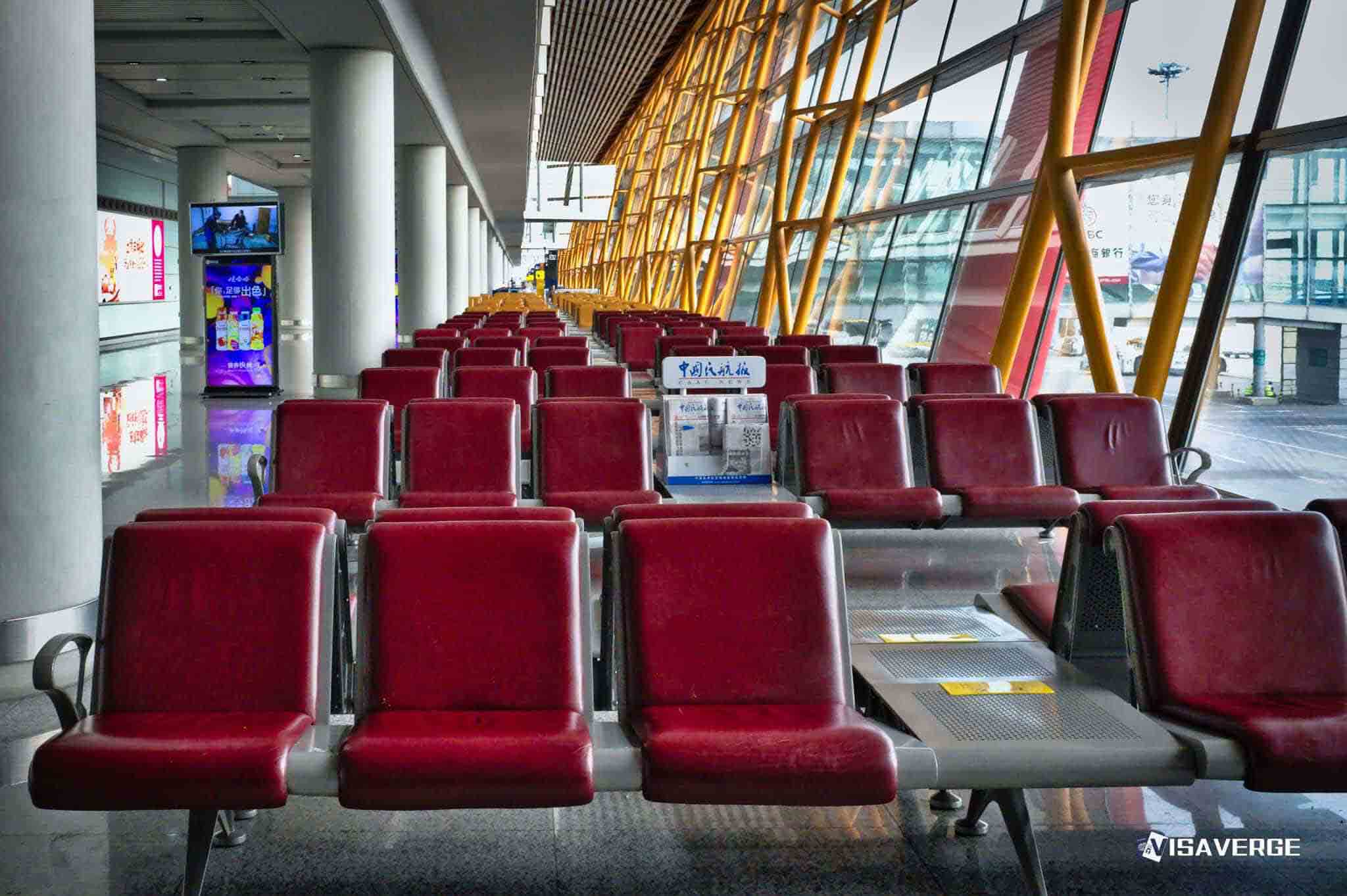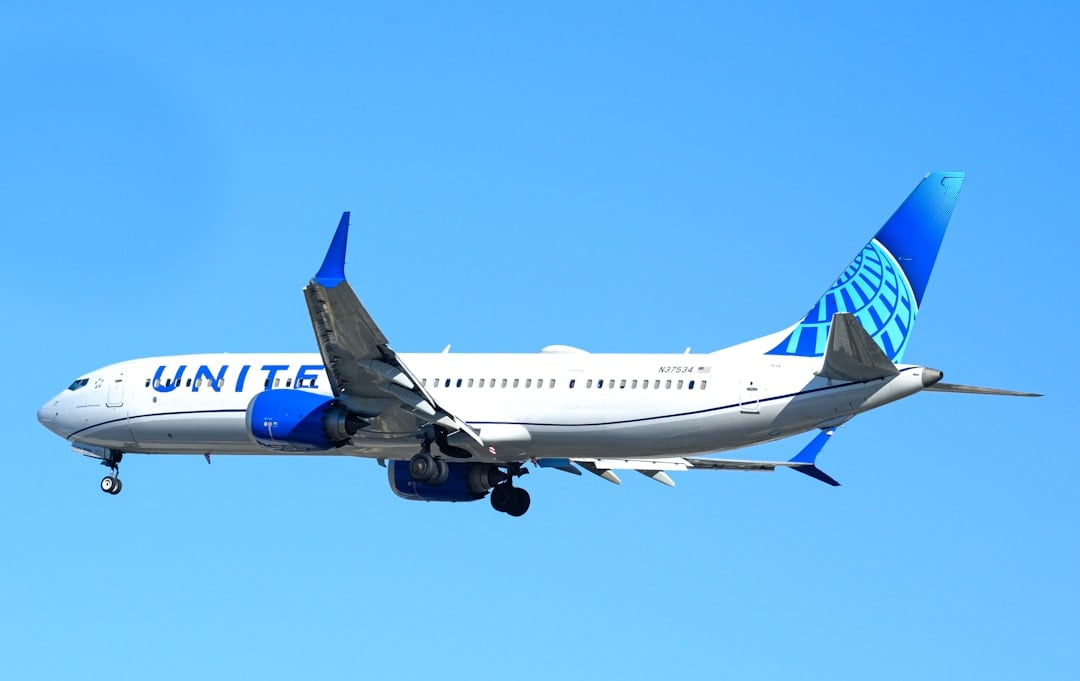Key Takeaways
• June 19, 2025, measles case at Dulles Airport exposed hundreds between 7:45 p.m. and 11:59 p.m.
• Virginia reported four measles cases in 2025, three linked to international travel through Dulles Airport.
• Over 1,200 measles cases reported in the U.S. in 2025; 95% unvaccinated or unknown vaccination status.
A New Wave of Measles Exposure at Dulles Airport: What Travelers and the Public Need to Know
Who, What, When, Where, Why, and How

On June 19, 2025, the Virginia Department of Health (VDH) confirmed a new case of measles involving an international traveler who passed through Washington Dulles International Airport in Northern Virginia. This traveler, who was on their way to North Carolina, may have exposed hundreds of people to measles in several busy areas of the airport between 7:45 p.m. and 11:59 p.m. The VDH is now investigating this potential measles exposure at Dulles Airport, working quickly to identify and notify anyone who may have been at risk.
This is not the first such incident this month. Just eleven days earlier, on June 8, another international traveler with measles moved through Dulles Airport and used the Washington Metro system, possibly exposing even more people. These cases are part of a larger trend: Virginia has reported at least four measles cases so far in 2025, three of which are directly linked to international travel and exposures at Dulles Airport.
Why is this happening? Measles is a highly contagious disease that spreads easily in crowded places like airports. International travel increases the risk of bringing measles into the United States 🇺🇸, especially when travelers come from countries where measles is more common or vaccination rates are lower. The VDH, along with the Centers for Disease Control and Prevention (CDC), is urging everyone—especially travelers—to check their vaccination status and take steps to protect themselves and others.
Details of the Recent Measles Exposures at Dulles Airport
June 19, 2025: New Exposure Event
- Locations and Times:
- Concourse A, transportation to the International Arrivals Building (IAB), and baggage claim: 7:45 p.m. – 11:59 p.m.
- Departures area of Main Terminal, East Security Checkpoint, transportation to Concourse C, and inside Concourse C: 8:00 p.m. – 11:59 p.m.
Anyone who was in these areas during these times may have been exposed to measles. The VDH is working to contact passengers from affected flights and public transit routes.
June 8, 2025: Previous Exposure Event
- Locations and Times:
- Dulles International Airport (Concourse A, IAB, baggage claim): 10:30 a.m. – 1:00 p.m.
- Silver Line Train (Dulles to Metro Center, transfer to Red Line toward Shady Grove): 11:30 a.m. – 2:30 p.m.
This case also involved exposures at the Russian School of Mathematics in Chevy Chase, Maryland 🇺🇸, on Metrobus routes L8 and H4, and at MedStar Health Pediatrics in Washington, D.C.
The Bigger Picture: Measles in Virginia and the United States 🇺🇸
Virginia’s 2025 Measles Cases
- At least four confirmed cases as of June 26, 2025.
- Three cases directly linked to Dulles Airport exposures (June 8 and June 19).
- The first case in April 2025 involved a child under 4 in the Northwest region, also linked to international travel.
National Trends
- 1,227 measles cases have been reported in the United States 🇺🇸 so far in 2025.
- 95% of cases are in people who are unvaccinated or whose vaccination status is unknown.
- Three deaths have been reported nationwide.
- In 2024, there were only 284 cases and no deaths, showing a sharp increase this year.
According to analysis by VisaVerge.com, this surge is closely tied to international travel and declining vaccination rates in certain communities.
Why Measles Spreads So Easily
Measles is one of the most contagious diseases known. It spreads through the air when an infected person coughs or sneezes. The virus can linger in the air and on surfaces for up to two hours. If someone who is not immune breathes the air or touches a surface with the virus, they can get sick.
Epidemiologists say that one person with measles can infect 12 to 18 others if they are not protected. This is called the “basic reproduction number” or R0. Because of this, even a single case in a crowded place like Dulles Airport can lead to many new infections.
What Is VDH Doing About the Measles Exposure at Dulles Airport?
The VDH is leading the investigation and public notification efforts. They are:
- Identifying and contacting people who may have been exposed, including passengers on specific flights and public transit routes.
- Working with the CDC and health departments in Washington, D.C., and Maryland 🇺🇸 to track exposures that cross state lines.
- Providing public health guidance to help people know what to do if they were in the affected areas.
No major policy changes have been announced yet, but the VDH and CDC are reminding everyone about the importance of the measles, mumps, and rubella (MMR) vaccine, especially for travelers and people in outbreak settings.
What Should You Do If You Were at Dulles Airport During the Exposure Times?
Step-by-Step Guidance
- Check if You Were Exposed
- Review the dates, times, and locations listed above.
- If you were at Dulles Airport or on the Metro during those times, you may have been exposed.
- Assess Your Immunity
- If you have two documented doses of the MMR vaccine or were born before 1957, you are considered protected.
- If you are unvaccinated or unsure about your vaccination status, contact your healthcare provider right away.
- Watch for Symptoms
- Early symptoms usually appear 7–14 days after exposure and include:
- Fever (over 101°F)
- Runny nose
- Red, watery eyes
- Cough
- A rash typically appears 3–5 days after the first symptoms, starting on the face and spreading to the rest of the body.
- Early symptoms usually appear 7–14 days after exposure and include:
- If You Develop Symptoms
- Isolate yourself to avoid spreading the virus to others.
- Call your healthcare provider before going to a clinic or hospital. This helps prevent further spread in medical settings.
- Vaccination
- If you are not vaccinated, get the MMR vaccine as soon as possible.
- Infants aged 6–11 months who are traveling internationally should get one dose before travel, then two more doses after their first birthday.
For more information, visit the VDH Measles Website.
Why Vaccination Matters
Vaccination is the best way to prevent measles. The MMR vaccine is safe and very effective. Two doses protect about 97% of people from getting measles. High vaccination rates help protect everyone, including those who cannot be vaccinated for medical reasons.
Herd immunity happens when enough people are immune to a disease, making it hard for the disease to spread. For measles, about 95% of people need to be vaccinated to keep outbreaks from happening.
Who Is Most at Risk?
- Unvaccinated people are at the highest risk of getting measles if exposed.
- Infants too young to be vaccinated (under 12 months old) are also at risk.
- People with weakened immune systems (such as those with certain medical conditions) may not be able to get the vaccine and rely on others being vaccinated to protect them.
Implications for Travelers, Immigrants, and the Public
For Travelers
- International travelers should check their vaccination status before leaving the United States 🇺🇸 or coming into the country.
- Some countries have ongoing measles outbreaks, and travelers can bring the virus back with them.
- The CDC recommends that all travelers be fully vaccinated against measles.
For Immigrants and New Arrivals
- Many immigrants and visitors pass through Dulles Airport each day. Some may come from countries where measles is more common or where vaccination rates are lower.
- Immigrants and refugees are often required to show proof of certain vaccinations, including MMR, as part of the immigration process. However, not all travelers are required to do so.
- Those who are new to the United States 🇺🇸 should check with their healthcare provider or local health department to make sure they are up to date on all recommended vaccines.
For the General Public
- Anyone who was at Dulles Airport or on the Metro during the exposure times should check their vaccination status.
- Schools and workplaces may require proof of vaccination or may exclude unvaccinated people during outbreaks.
- Outbreaks can disrupt daily life, including school attendance, work, and travel plans.
What Are the Symptoms of Measles?
- Fever (often high)
- Cough
- Runny nose
- Red, watery eyes
- Rash that starts on the face and spreads to the rest of the body
Symptoms usually begin 7–14 days after exposure. The rash appears 3–5 days after the first symptoms. Measles can cause serious complications, especially in young children, pregnant women, and people with weakened immune systems.
How Are Health Authorities Responding?
Virginia Department of Health (VDH)
- Leading the investigation and public notification.
- Contacting people who may have been exposed.
- Providing up-to-date information and guidance to the public.
- Media contact: Brookie Crawford ([email protected])
Centers for Disease Control and Prevention (CDC)
- Tracking measles cases nationwide.
- Offering guidance on vaccination and outbreak response.
- For more information, visit the CDC Measles Page.
DC Health and Maryland Health Departments
- Working with VDH to notify people who may have been exposed on public transit and in other locations.
What Happens Next? The Future Outlook
- Continued Surveillance: VDH and CDC will keep monitoring for new cases, especially as summer travel increases.
- Possible More Cases: Because measles can take up to 21 days to show symptoms, more cases may be found in the coming weeks.
- Potential Policy Changes: If the number of cases keeps rising, health officials may set up special vaccination clinics or temporarily exclude unvaccinated people from certain places like schools or daycare centers.
Summary Table: Recent Measles Exposure Events at Dulles Airport
| Date | Location(s) & Time(s) | Case Details |
|---|---|---|
| June 19, 2025 | Dulles Airport: Concourse A, IAB, baggage claim (7:45pm–11:59pm); Main Terminal, Concourse C (8pm–11:59pm) | International traveler to NC |
| June 8, 2025 | Dulles Airport: Concourse A, IAB, baggage claim (10:30am–1pm); Metro Silver/Red Line (11:30am–2:30pm) | International traveler to DC area |
Key Takeaways and Practical Steps
- Multiple measles exposures have occurred at Dulles Airport in June 2025, linked to international travelers.
- VDH is actively investigating and contacting people who may have been exposed.
- Measles is highly contagious but can be prevented with the MMR vaccine.
- The United States 🇺🇸 is seeing a sharp rise in measles cases in 2025, with over 1,200 cases and three deaths so far.
- Immediate action is needed for anyone who may have been exposed, especially if unvaccinated or with a weak immune system.
Where to Get More Information
- Virginia Department of Health (VDH):
- VDH Measles Website
- Media Contact: Brookie Crawford, [email protected]
- General Inquiries: (804) 864-7000
- Centers for Disease Control and Prevention (CDC):
- DC Health:
Final Thoughts
The recent measles exposures at Dulles Airport highlight how quickly diseases can spread in our connected world. International travel brings many benefits, but it also carries risks, especially when vaccination rates drop. The VDH, CDC, and other health authorities are working hard to protect the public, but everyone has a role to play. Checking your vaccination status, getting the MMR vaccine if needed, and staying alert for symptoms are simple steps that can make a big difference.
If you think you may have been exposed to measles at Dulles Airport or on public transit, act quickly. Contact your healthcare provider, watch for symptoms, and avoid contact with others if you feel sick. By working together, we can help stop the spread of measles and keep our communities safe.
For the most current updates and detailed guidance, visit the VDH Measles Website.
References:
– Virginia Department of Health (VDH)
– Centers for Disease Control and Prevention (CDC)
– DC Health
– Analysis from VisaVerge.com
Learn Today
Measles → A highly contagious viral disease causing fever, rash, and serious complications, preventable with vaccination.
MMR vaccine → A vaccine protecting against measles, mumps, and rubella; two doses provide about 97% protection.
VDH → Virginia Department of Health responsible for public health monitoring and managing disease outbreaks in Virginia.
Basic reproduction number (R0) → The average number of people one infected person will infect; for measles, this is 12 to 18.
Exposure → Contact with someone or an environment carrying the measles virus, risking transmission of the disease.
This Article in a Nutshell
On June 19, 2025, Virginia health officials confirmed a measles case at Dulles Airport exposing hundreds. Multiple exposures link to international travelers amid a nationwide rise in measles. The VDH urges vaccination, especially for travelers, to curb this highly contagious disease spreading rapidly across the U.S.
— By VisaVerge.com







